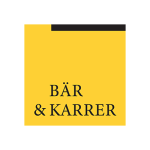Market overview
In 2021, there was a high level of activity in Switzerland, which paved the way for a positive start into 2022, with an optimistic outlook. Even though 2022 experienced economic challenges such as supply chain disruptions, global inflation, increasing interest rates and general macroeconomic uncertainty, 2022 ended up another record year for Swiss M&A, with 647 deals recorded with Swiss participation.
Consequently, although the global market situation is clouded, the Swiss M&A market remains somewhat stable. In particular, outbound transactions remained very strong in 2022.
While both private and public M&A deals remain of high importance, private M&A deals make up a larger share of the deals when it comes to the number of deals. However, public M&A transactions tend to be larger with regard to deal volume. Overall, though, private equity activity contributes significantly to the current M&A market environment. In recent months, Bär & Karrer has seen a high interest in public-to-private (P2P) transactions due to lower valuations.
In May 2022, DSM and Firmenich announced a merger of equals worth CHF 20.7 billion (approximately $23.2 billion), which unites two iconic companies into a leading player in nutrition, beauty, and well-being.
Another important transaction of 2022 was Novartis' decision to separate its subsidiary Sandoz, which deals with generics, with the intention of taking it public as an independent company. Sandoz encompasses the biosimilars and over-the-counter medication businesses, and this move will create the largest European generics company and a global leader in biosimilars. Novartis aims to become a more focused company by spinning off Sandoz, with a focus on innovative pharmaceuticals and improving its financial profile.
Partners Group Holding AG’s investment in Breitling AG drew a lot of attention in the M&A market as well. While Partners Group held a stake in Breitling before, it increased its stake to more than 50% in 2022. This deal values the Swiss watchmaker at more than CHF 4.2 billion, compared with CHF 800 million in 2017.
Economic recovery plans
Despite the uncertain economic situation, the Swiss M&A market remained highly productive in 2022, with 647 deals closed involving Swiss participation, totalling an aggregated deal size of $138.5 billion. This is the second consecutive year of a record-breaking numbers of deals, compared with 604 deals at an aggregated deal size of $169.6 billion in 2021 and 363 deals at an aggregated deal size of $63.1 billion in 2020.
As the second half of 2022 was comparably slow and the economic situation continues to be clouded with global recession fears, crisis in the banking industry and rising interest rates, one might assume that the trend will be negative. Nevertheless, certain market participants argue that this might, on the contrary, lead to an increase of M&A transactions for reasons such as reduction in valuations and less competition in auction processes, portfolio reshuffling and distressed M&A.
It therefore remains to be seen how the M&A market will continue to evolve and if new trends will develop. Overall, however, there is reason for optimism. This can include trends related to:
Industry consolidation, M&A-driven growth, financing considerations or other factors;
Distressed M&A work – takeover reorganisations, bidding, post-M&A closings; and
The impact of COVID on M&A-related disputes, and the use of indemnity provisions.
In the current market, interest rates are on the rise. This leads to potential issues regarding financing, which means that large-scale M&A transactions are becoming increasingly difficult.
In general, M&A practice, which has been influenced by a strong sellers' market in recent years, is slightly shifting towards a more balanced approach. Discussions which were not possible in the past few years – for example, regarding closing conditions or purchase price adjustments – have become more common again.
In recent years, the relevance of financial investors on the Swiss M&A landscape has been progressively increasing. Notably, private equity firms have played a significant role, with 94 deals in 2022. Bär & Karrer has noticed a focus on both the buy-and-build strategy, with private equity firms acquiring companies with the same or a similar business model to realise synergies and build a strategic alliance (for example, various add-on acquisitions of Farner group, a portfolio company of Waterland), and larger single deals (such as the investment in Breitling by CVC and Partners Group). Bär & Karrer expects that this trend will continue.
Shareholder activism is still moderate in Switzerland compared with other jurisdictions, with the Swiss corporate community being rather critical of such movement, as it is regarded as short-term oriented.
Legislation and policy changes
Swiss M&A transactions revolving around companies which have their equity securities (fully or partially) listed on a Swiss exchange (in the case of non-Swiss domiciled issuers, only if the main listing is in Switzerland) are subject to the Swiss Financial Market Infrastructure Act (FMIA; including its implementing ordinances) and the Swiss Federal Merger Act.
These pieces of legislation are mainly driven by the concept of freedom of investment, meaning that the target’s shareholders should be put in the position to make a free decision whether to accept a tender offer, without having to fear repercussion by being minoritised. Another fundamental concept implemented in these acts is the equality of a target's shareholders and their equal treatment.
These two concepts in essence demand a higher grade of regulation compared with private transactions. Within the framework of the FMIA, the SIX Swiss Exchange is tasked with issuing regulations regarding the admission of securities to listing and continued compliance with such obligations.
The Swiss Takeover Board (TOB) and the Swiss Financial Market Supervisory Authority (FINMA) form the controlling bodies and are responsible to enact such regulations in light of the Swiss public takeover regime. In this set-up, FINMA acts as a superior instance to the TOB, so that decisions made by the TOB may be disputed in front of FINMA and ultimately in front of the Swiss Federal Administrative Court.
Private transactions are much less regulated as there is no specific act regulating the acquisition of a privately held company. The key legislation for private M&A is the Swiss Code of Obligations, with its general laws regarding sales law, which in general implements the concept of the will of the parties. The involved parties thus possess a greater flexibility to determine the applicable contractual rules. These contractual rules are driven by individual negotiations and agreements. However, certain legislation may be applicable depending on the parties involved and the nature of the transaction. This may include the Antitrust Act and the Act on the Acquisition of Real Estate by Persons Abroad (Lex Koller).
The key development for 2022–23 was the entering into force of the new Swiss corporate law as of January 1 2023. There are a variety of changes, the most notable ones being the introduction of interim dividends and the so-called capital band, which grants more flexibility on changes of a company's capital structure. Furthermore, the reform introduced new ways to hold shareholder and board meetings, implementing lessons learnt during the pandemic and increasing the flexibility of how resolutions can be passed.
New non-financial reporting requirements and due diligence obligations related to conflict minerals and child labour have entered into force in Switzerland as of January 1 2022. Even though these obligations and requirements will only affect a limited number of companies in Switzerland, they still indicate a growing focus on ESG and corporate social responsibility and show a clear trend of priorities. It is therefore no surprise that a recent survey by a large audit company revealed that 82% of market participants take sustainability into account during M&A transactions and 40% of those report conducting ESG-related due diligences. Therefore, even though COVID has had a more noticeable impact on M&A in Switzerland compared with ESG-related topics so far, ESG-related matters are expected to become increasingly more important.
So far, Switzerland does not have any general foreign direct investment restrictions outside specific areas (for example, the banking sector or the purchase of residential real estate). However, in March 2020, the Swiss Parliament approved the Rieder motion, which aimed to safeguard the Swiss economy through investment controls. As a result, the Federal Council was tasked with developing a legal framework for investment reviews.
The consultation process for the proposed Investment Review Act (IPG) was launched on May 18 2022 and was completed on September 9 2022, with the results currently being evaluated. The introduction of an IPG could have implications for the attractiveness of Switzerland as a business location, and it remains to be seen how it will affect the country's economy and its M&A market.
Practice insight/market norms
Generally, the regulatory landscape for most Swiss transactions is not too formalistic. Swiss law is fairly liberal, allowing the dealmakers to have a high flexibility when it comes to structuring a deal.
A misconception one might have is that only the pharma sector and financial services are relevant in Switzerland. However, this is not true, as the M&A activity of small and medium-sized enterprises (also in the industrial sector) is a key driver. Furthermore, Switzerland has been able to attract a lot of start-ups, not least because of its liberal regulations and high level of education.
It is rare to find a complete ownership chain for Swiss target companies that can be traced back to their incorporation. As a result, sellers intending to sell such companies should begin the process of cleaning up their title well in advance of initiating the sales process, to avoid any potential delays.
The adoption of artificial intelligence, various machine learning tools and big data is on the rise in Switzerland. As digitalisation becomes more prominent, Swiss law firms are recognising the importance of incorporating these technologies into their operations to improve efficiency. Bär & Karrer’s experience shows that these tools can be very useful, and it is therefore expected that further new instruments will be developed and that their relevance for M&A transactions will continue to increase.
Public M&A
In an ideal scenario, an offeror holds more than 98% of the voting rights in the target company following a public tender offer, as this allows the offeror to file for cancellation of the remaining shares in a statutory squeeze-out court procedure pursuant to the FMIA against payment of the offer price to the holders of the cancelled shares. If the offeror falls short of the 98% threshold but holds at least 90% of the voting rights, full ownership can be achieved through a squeeze-out merger pursuant to the Swiss Merger Act. However, this carries a higher litigation risk than the aforementioned FMIA procedure.
Therefore, while holding more than 50% of the voting rights will give an offeror effective control over a company, and 66⅔% of the voting rights together with the majority of the capital allows the taking of certain important resolutions that by law are subject to this higher quorum, an offeror will typically want to reach at least the 90% threshold to be able to obtain full control.
In mandatory takeover offers, minimum acceptance threshold conditions are not permissible (more on this below). A voluntary offer, however, may be conditional on a minimum acceptance threshold, though only if the threshold is not unrealistically high. Whether the TOB considers a threshold as unrealistically high depends on the circumstances of the case. In the absence of significant holdings by the offeror in the target company before the offer, the TOB will typically not permit a condition requiring that the offeror reaches the 90% threshold. In contrast, a 66⅔% minimum acceptance threshold is generally accepted even if the offeror holds no, or only a limited number of, shares before the offer. However, in practice, the vast majority of successful public tender offers have also cleared the 90% hurdle.
Swiss law allows hostile and friendly takeover bids, but an offer that is supported by the target company’s board is more likely to be successful. In a friendly takeover, the offeror and the target company will typically enter into a transaction agreement pursuant to which the target’s board of directors agrees to recommend the offer to its shareholders subject to a ‘fiduciary out’ in the event of a superior offer. It is also customary for the target to agree in the transaction agreement not to solicit offers from third parties.
The permissibility of conditions that may be attached to a public takeover offer depends on whether the offer is voluntary or mandatory. The duty to make a mandatory offer is triggered if the offeror acquires shares in a company exceeding the threshold of 33⅓% of the voting rights or a higher threshold of up to 49% that applies pursuant to a so-called opting-up clause in the target’s articles of association (Swiss law also allows companies to opt out from the mandatory bid regime).
With respect to mandatory offers, there is only a very limited number of offer conditions that the TOB deems permissible. These include that no injunction or court order prohibiting the transaction will be issued and that necessary regulatory approvals will be granted, as well as conditions ensuring the ability of the offeror to exercise the voting rights (i.e., entry in the share register and abolishment of any transfer and/or voting restrictions).
In voluntary offers, the TOB accepts a much wider range of conditions, including minimum acceptance thresholds (see above), ‘no MAC’ (material adverse change) conditions and conditions protecting the offeror against disposals and distributions by the target.
As the valuations are lower and it is more challenging to obtain financing, there is a growing interest in P2P transactions. Generally, break fees are deemed acceptable if they serve to compensate the offeror for potential costs associated with a failed transaction. However, break fees that are excessive and restrictive, and that may hinder shareholders' freedom to accept or reject an offer or discourage competing bids, could be considered invalid. It is important to note that there is no clear-cut answer in Swiss legal doctrine or case law on this matter.
Private M&A
In contrast to the US and Asia, locked-box pricing mechanisms are commonly used and considered acceptable in Switzerland. This is especially true in the current market, which is (still) favourable to sellers. In order to minimise balance sheet risks and avoid disputes over post-closing purchase price adjustments, sellers often prefer the use of locked-box pricing mechanisms.
Additionally, due to the seller-friendly market, locked-box pricing mechanisms are often accompanied by interest payments or cash-flow participation for the period between the locked-box date and the actual payment of the purchase price (i.e., closing). Furthermore, buyers are more willing to accept longer periods between the locked-box accounts date and closing.
The use of warranty and indemnity (W&I) insurance in private M&A deals has increased in Switzerland in recent years. In the current sellers' market, buyer policies are mainly seen, which can be a solution to bridge the ‘liability gap’ where a seller is prepared to give representations and warranties but wants to cap its liability at a level that the buyer is not comfortable with – the W&I insurance can increase the overall cover available for the buyer.
If the liability cannot be capped or excluded due to the lack of negotiation power of the seller, seller policies are used (especially by financial sponsors) to shift the risk of potential outstanding claims to an insurer to be able to distribute the exit proceeds to the greatest extent possible to investors immediately following closing. This trend is expected to continue, also in view of the fact that more insurers from the EU are entering the Swiss market.
In today's (still) rather seller-friendly market, sellers typically aim to minimise conditionality to ensure higher transaction certainty. This includes a decrease in the use of MAC clauses, which have almost disappeared, and for some sellers, the merger control assessment outcome can impact their choice of a bidder during an auction. Additionally, it is becoming more common to include ‘hell or high water’ clauses as part of the merger clearance closing condition.
When dealing with a Swiss target company, a Swiss law-governed share purchase agreement with jurisdiction in Switzerland is almost always seen, as there are clear benefits to using domestic law and a domestic forum. Furthermore, several legal matters, including the valid transfer of shares and governance provisions, cannot be subject to any other choice of law.
If a private equity or another investor shares an investment in a target with another party, the investor's ability to exit and the exit route depend on the shareholders' agreement terms. Typically, the most prevalent exit routes are trade sales to strategic investors or private equity firms, which include secondary buyouts.
While IPO exits on the SIX Swiss Exchange are less common, they have gained appeal in recent years.
To increase deal certainty, there is a rising tendency towards dual-track processes, especially during volatile and unpredictable markets, to maximise valuation, even though running simultaneous IPO and M&A processes is very complex.
Looking ahead
In periods of unpredictability or fluctuations in the market, mergers and acquisitions tend to decrease. Nevertheless, these circumstances can also present favourable conditions, as asset valuations become more appealing. So far, Bär & Karrer is fairly optimistic. Nevertheless, it remains uncertain whether private equity investors will continue to be as involved as in recent years due to the increased interest rates.




